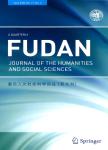Enactments of Identity in the New Zealand Short Story
Enactments of Identity in the New Zealand Short Story作者机构:School of English and Media Studies Massey University Auckland Campus North Shore MailCentre Private Bag 102904 Auckland 0745 New Zealand
出 版 物:《Fudan Journal of the Humanities and Social Sciences》 (复旦人文社会科学论丛(英文版))
年 卷 期:2018年第11卷第1期
页 面:99-117页
学科分类:0501[文学-中国语言文学] 05[文学] 0503[文学-新闻传播学]
基 金:East China Normal University ECNU
主 题:New Zealand Short story Settler fiction Genre fiction Culturalidentity
摘 要:New Zealand, as a nation, has been in existence for less than two cen- turies-whether one dates its assumption of sovereignty to the 1835 Declaration of Independence by the Confederation of United Tribes, the 1840 Treaty of Waitangi between Maori and the British Crown, or its attainment of Dominion status in 1907. The question of a separate cultural identity for this post-colonial, multi-cultural country has therefore always been a complex one, and one which has had a strong influence on much of our artistic expression to date: particularly, perhaps because of its inherent tendency towards the self-analysis only really possible within language, literature. The fact that our most famous locally born writer to date, Katherine Mansfield, specialised in the short story has certainly helped to establish that as a vital genre here. This paper accordingly takes four successive anthologies of local short fiction--Frank Sargeson's Speaking for Ourselves (1945), Michael Morris- sey's The New Fiction (1985), Warwick Bennett and Patrick Hudson's Rutherford's Dreams (1995), and Tina Shaw and Jack Ross's Myth of the twenty-firstCentury (2006)--and attempts to characterise their respective, overlapping visions of New Zealand identity by conducting a close reading of a representative story from each of them. The essay concludes with a call for a new anthology which might attempt to give expression to this series of gradual erosions of our initial cultural certainties into something more adequate to the realities of our place in the world, both geo- graphically and culturally.



